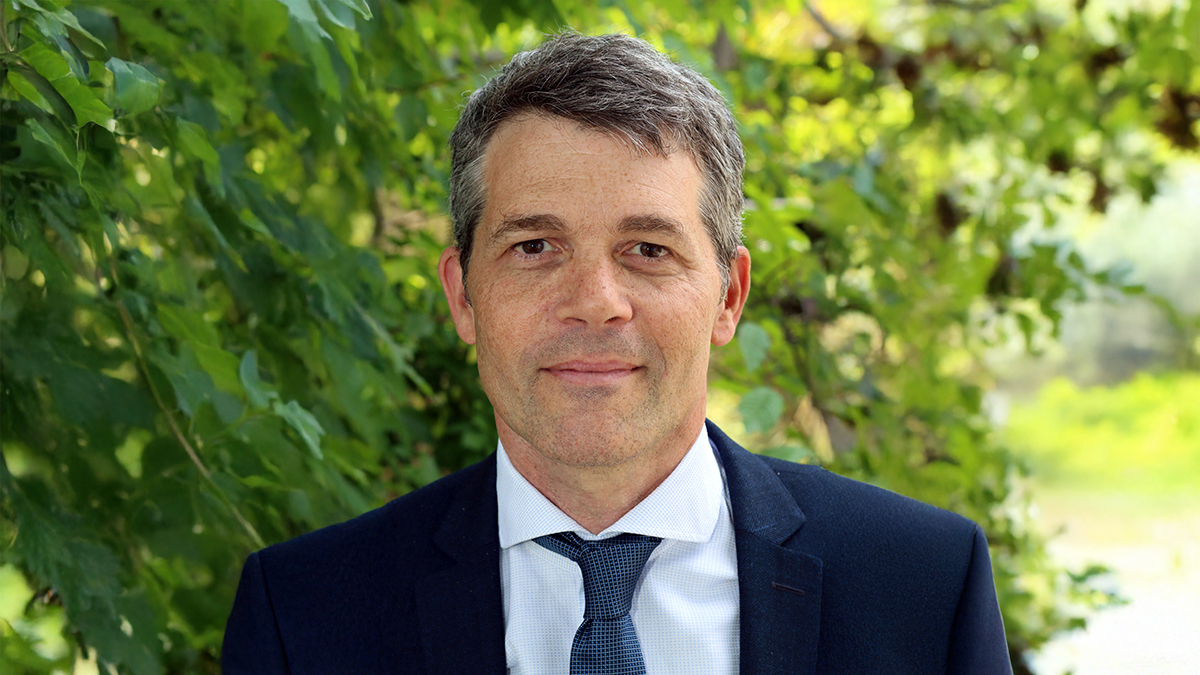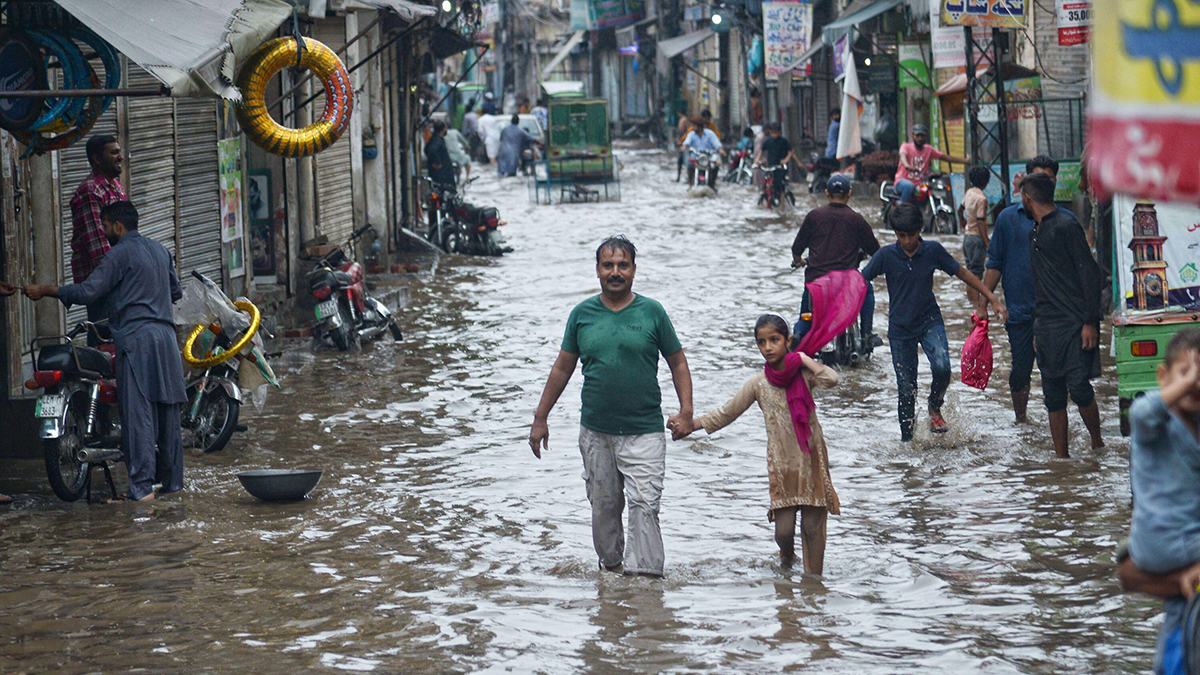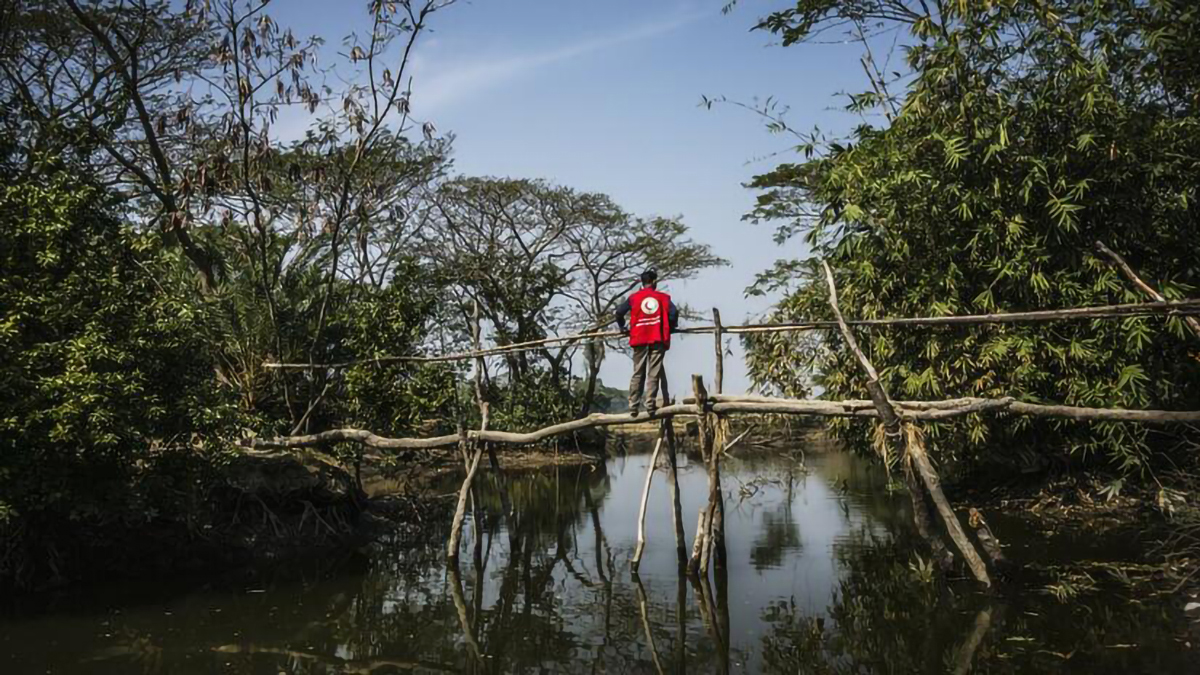Climate finance should focus on private capital, not just public funding: WWF
WWF makes the case for the urgency of public-private partnerships to unlock climate finance
Public finance may dominate climate discussions, but the impact of private sector money is ‘much, much bigger’, WWF UK’s chief economist says
Climate finance must extend beyond public funding to the transformative power of the private sector, including insurers, according to the chief economist at WWF UK, Karen Ellis.
In an interview with Insurance Day, Ellis says while public finance tends to dominate climate talks, the potential impact of private sector money is "much, much bigger" and therefore crucial to tackling the cost of a changing climate.
The role of the insurance industry in improving climate resilience is under scrutiny.
"We’ve seen the fires in the US and the insurance companies pulling out. That means that households are going to end up with no cover. The government then must step in," Ellis says, highlighting the growing need for alternative government-funded insurance mechanisms.
Travelers Insurance recently announced $1.7bn in pre-tax losses from the California wildfires. These losses are the heaviest in a series of loss estimates from major carriers in the wake of fires that devastated nearly 50,000 acres of land in and around Los Angeles. Other carriers affected by the wildfires have also reported losses in the hundreds of millions or even billions.
Fiscal pressures
It is this critical intersection of public and private finance that is becoming increasingly important as governments grapple with climate-related fiscal pressures. Ellis says governments need to consider seriously how these costs will impact their economies and adapt accordingly.
She explains how WWF is already trying to address this challenge through strategic partnerships. The organisation has been working with Aviva since 2021 to help transform what WWF describes as one of the biggest indirect drivers of climate change – the UK’s finance sector. The partnership explicitly focuses on building climate resilience from an insurance perspective, with WWF noting that Aviva is "all too aware of the devastating effects of climate-related extreme weather on customers and communities".
These partnership efforts were strengthened by a September 2023 WWF report, supported by Deloitte Switzerland, which described insurance companies as "economic heavyweights" whose underwriting decisions could dramatically improve efforts to address climate change and nature loss. The report found many economic activities underwritten by insurance companies are fuelling rather than addressing these twin crises.
"We’ve seen the fires in the US and the insurance companies pulling out. That means that households are going to end up with no cover. The government then must step in"
Karen Ellis
WWF UK
Climate action – let alone climate finance – faces the scepticism of the newly installed US president, Donald Trump, with his mantra "drill baby, drill". This, combined with rising geopolitical uncertainty, makes justifying spending on climate change solutions challenging. But Aaron Vermeulen, global practice finance lead at WWF International, urges potential climate financiers not to hesitate, stressing that the risks of inaction and inconsistency from financial institutions and insurers outweigh the risks of ambitious climate action.
"If you as a financial institution [are] not paying attention and not being consistent in how you address these risks, then it will punch you in the face," Vermeulen says, emphasising that climate impacts will continue regardless of political fluctuations.
This warning is already playing out in key markets. In California, Hartford, State Farm and Allstate have ceased writing new home insurance policies following last year’s wildfires, while in Florida, flood insurance costs have doubled or tripled for thousands of homeowners in flood-prone areas.
According to statistics published by the California Department of Forestry and Fire Protection (Cal Fire), a total of 7,127 wildfires burned a total of 324,917 acres in California in 2023. Last year, Cal Fire responded to 8,024 wildfires that burned more than one million acres.
Innovation
However, there are reasons for optimism. Ellis and Vermeulen highlight innovative approaches to climate finance that could create new opportunities for the insurance sector. The Dutch Fund for Climate and Development, they argue, is a perfect example of where private capital has amassed more firepower than public spending could achieve alone, having successfully mobilised €1.3bn ($1.36bn) in commercial finance from an initial €200m government grant.
They also highlight the UK’s ambition to become the world’s first net-zero aligned financial centre, announced at COP26, as potential best practice, although Ellis notes this "hasn’t quite lived up to its promise yet". The UK government’s recent commitment to require 1.5°C aligned transition plans from FTSE 100 firms could create new imperatives for insurers, both as institutional investors and as underwriters, Ellis argues.
Looking ahead to future climate talks, including COP30 in Brazil, Ellis and Vermeulen emphasise the need to focus on mobilising private finance and creating appropriate regulatory frameworks.
For insurers, the message from WWF is clear: these are existential threats that demand immediate attention. Ellis emphasises that both physical risks from climate change and transition risks from incoming regulation need to be managed better. She also points to opportunities, noting "there’s a lot of potential for investment and growth of these kinds of industries of the future".
"If you as a financial institution [are] not paying attention and not being consistent in how you address these risks, then it will punch you in the face"
Aaron Vermeulen
WWF International
The September 2023 WWF report outlines specific steps insurers can take to reduce their negative environmental impact and become catalysts for change. These include strategically aligning underwriting policies with global climate and biodiversity goals, engaging with clients and brokers on the green transition, and promoting resilient choices through product design and claims management.
Marcel Meyer, head of sustainability services at Deloitte Switzerland, who co-authored the report, says the insurance industry has the power to play a leading role in climate goals, by incentivising sustainable practices and promoting responsible behaviours from its clients.
WWF is actively working to develop opportunities through various initiatives. The organisation recently signed a memorandum of understanding with the European Investment Bank to develop a pipeline of nature-based solutions worth half a billion euros over five years. They are also working with the Asian Development Bank to establish a major solutions financing hub in the Asia-Pacific region.
Barriers to progress
However, political deadlock between developed and developing nations remains a significant barrier to progress in climate finance, according to Ellis, with emerging markets demanding greater financial support from nations they view as historically responsible for climate change.
She argues Brazil’s proposed Tropical Forest Financing Mechanism offers one potential breakthrough, creating a sovereign lending mechanism that would financially reward countries for preserving their tropical forests while imposing penalties for deforestation. This approach, Ellis suggests, represents the kind of innovative thinking needed to unlock more finance and overcome the current impasse in global climate funding.
For insurers, these developments in creating a climate finance architecture are significant, since their sector faces two pressures – as institutional investors needing to decarbonise portfolios and as underwriters managing escalating climate risks. US insurers withdrawing from high-risk areas highlights one of the central paradoxes for insurers when it comes to climate, Ellis says. This is how to maintain coverage in increasingly vulnerable regions while remaining financially viable.
The WWF report recommends several specific measures to address this challenge, including reviewing policies to eliminate "harmful" incentives that impact the environment and communicating clear phase-out plans for any fossil fuel-related business in line with the International Energy Agency’s net-zero emissions by 2050 scenario.
The emergence of new blended finance models could also offer solutions. "The role of concessional finance in de-risking investments is crucial," says Vermeulen, who suggests new structures where public funding could help insurers maintain coverage in challenging markets. This could be particularly relevant for parametric insurance products in developing nations, where traditional insurance models may struggle with climate-related risks.
Looking ahead, both experts emphasise the insurance sector’s role in climate resilience will only grow. As governments grapple with limited public finances post-Covid, innovative insurance solutions could help bridge the protection gap in vulnerable regions. However, this will require new forms of public-private partnership and potentially novel approaches to risk assessment that incorporate both climate and nature-related factors.
"The government must step in through welfare or through setting up alternative government-funded insurance mechanisms," Ellis notes, again highlighting the urgent need for the insurance sector to work with policymakers on sustainable solutions before public finances become overwhelmed by climate-related costs.
Insurers must engage proactively with climate finance developments. As Vermeulen warns, the risks created by inaction are substantial, regardless of short-term political shifts. The sector’s expertise in risk assessment and management could prove crucial in developing the public-private financial network needed to address the world’s climate challenges.



